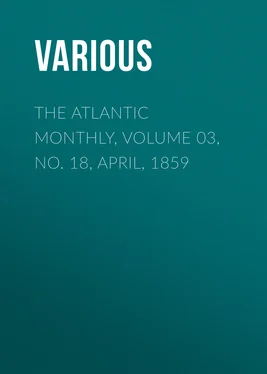This improved state of things and feelings, within so short a period of time, reflects equal credit on the people which benefits by it and on the men who have lately presided over its destinies. Among these last it were invidious not to mention, with well-deserved praise, the active and accomplished statesman who introduced free trade, caused Piedmont to take its share in the Crimean War, and last, not least, by a bold and skilful move, brought the Italian question before the Congress of Paris.
During the summer of 1848, I rented a couple of rooms in the Via dell' Arcivescovado. There often fell upon my ear, wafted across the court from the windows opposite mine, a loud and regular declamation. I fancied it was a preacher learning by heart his sermon, or an actor his part. I was told one day that it was Count Cavour, the owner of the house, who, as a prelude to his parliamentary career, was addressing an imaginary assembly. The fact struck me the more, as the Count was not a member of Parliament at the time. He was elected a Deputy and took his seat not long after. I was present at his début . It was not brilliant. Count Cavour was not born an orator; his delivery was far from fluent. He had many things to say, and wanted to say them all at once. The sense of the House was not favorable to the new member,—that of the public galleries still less so. No man was less spoiled by popularity than he. I have no other reason for mentioning these particulars than to put in relief the strength of will and the perseverance which one so situated must have brought to bear, in order to conquer his own deficiencies and the popular prejudice, and attain, against wind and tide, the high place he holds in the estimation of Parliament and of the country. That Count Cavour has made himself, if not properly an orator, in the high sense of the word, a nervous, fluent, and most agreeable speaker, is sufficiently attested by the untiring attention with which his speeches, occupying sometimes two whole sittings, are listened to in both Houses. He never puts them in writing, and seldom, if ever, makes use of notes.
Конец ознакомительного фрагмента.
Текст предоставлен ООО «ЛитРес».
Прочитайте эту книгу целиком, купив полную легальную версию на ЛитРес.
Безопасно оплатить книгу можно банковской картой Visa, MasterCard, Maestro, со счета мобильного телефона, с платежного терминала, в салоне МТС или Связной, через PayPal, WebMoney, Яндекс.Деньги, QIWI Кошелек, бонусными картами или другим удобным Вам способом.
We have taken for granted the soundness of the views of Niebuhr on the Roman Agrarian contests and laws, that eminent scholar having followed in the track of Heyne with distinguished success; but it must be allowed that in some respects his positions have been not unsuccessfully assailed. Those who would follow up the subject are recommended to study Ihne's Researches into the History of the Roman Constitution , in which some of Niebuhr's views are energetically combated. The main points, however, that the Agrarian laws were not directed against private property, or aimed at placing all men on a social equality, may be considered as established. Yet it must in candor be admitted that the general subject is still involved in doubts, the German commentators having thrown as much fog about some portions of the Roman Constitution as they have thrown light upon other portions of it.












